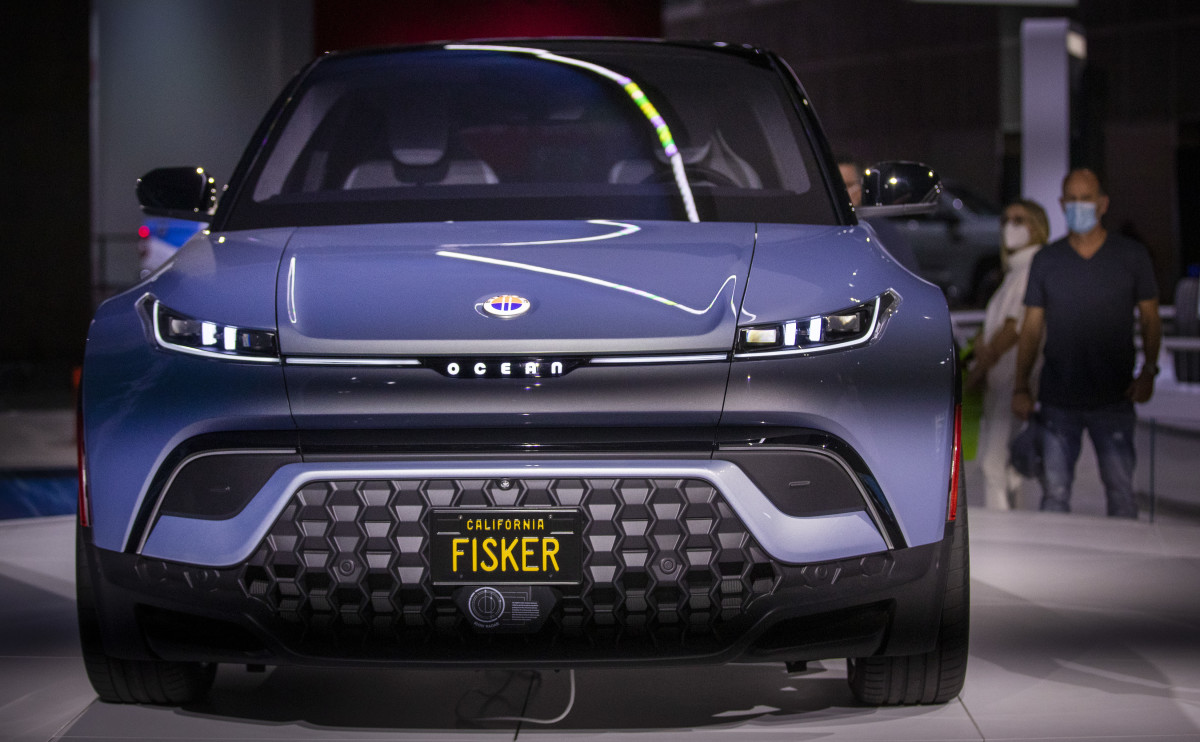
Fisker (FSR) -) is walking a tightrope.
At least that's one analyst's opinion as the Manhattan Beach, Calif.-based electric vehicle startup confronts several setbacks in its efforts to find a place in the market.
Related: Tesla slides amid China sales slump as rival BYD grabs market share
Fisher's problems come at a time when the EV sector has been experiencing a setback, with major automakers postponing or cutting back on the electric vehicle plans.
Last month, Fisker reported third-quarter revenue of $71.8 million and a net loss of $91 million, or 27 cents per share, which fell short of Wall Street's expectations.
Florus Beuting, who was named chief accounting officer in early November, left the automaker a short time later, the company said in a regulatory filing.
His exit followed the departure of his predecessor, John C. Finnucan IV, who left in late October after about three years at the startup to take a job with another company, leading Fisker to unexpectedly delay its earnings release.
Fisker said it had “determined that it has material weaknesses in the Company’s internal control over financial reporting.”
CEO: 'We are doing quite well.'
CFO Geeta Gupta-Fisker said during an Nov. 11 earnings call with analysts that the third quarter was “highly complex”.
She talked about "growing pains," according to a transcript of the call, and noted that “we are addressing all these different areas so we can also mature our systems, hire more people, hire more talent to address all these different areas, and it's a work in progress.”
Then on Dec. 1, Fisker said that it would scale down production and produce fewer cars this year than its previous guidance, to prioritize cash for working capital needs.
"Fisker has made a strategic decision to reduce December production to prioritize liquidity to unlock over $300 million of working capital, which creates additional business flexibility," the company said in a statement. "As a result, Fisker is adjusting production guidance to just over 10,000 units for 2023."
Last month, Fisker cut its production target to between 13,000 and 17,000 vehicles for the year. Fisker had previously set a target of producing more than 20,000 vehicles by the end of the year.
As of Nov. 30, Fisker said it had 123 vehicles either delivered or in transit to customers.
Chairman and CEO Henrik Fisker said in the statement that "our teams have worked hard to overcome some early delivery challenges and are now setting an impressive pace as we prepare to close out 2023.”
“We may not have hit our original forecast but taking current market conditions and negative sentiments around EV sales into account," he said. "I would say we are doing quite well, as we continue to accelerate sales and deliveries."
Analyst: Next 12 months 'highly precarious'
Fisker, who has worked at Tesla (TSLA) -), BMW (BMWYY) -), Ford (F) -), and Aston Martin (AMGDF) -) said that "this is yielding considerable revenue as we ramp up our business."
"I expect by the end of this year we will have delivered more customer cars than any Western EV startup did in their first year of deliveries," he added.
The company also said that it had approval to sell vehicles in Canada and start transporting vehicles from U.S. ports to Canadian customers. Fisker said it had partnered with Scotiabank for financing.
In addition, Fisker said it is pursuing agreements with several major automakers to sell EPA Greenhouse Gas emission credits and expects to generate 2.7 million GHG Credits through model year 2025.
Shares surged immediately following the announcement but were down 1.4% to $1.70 at last check. Fisker shares closed at $7.38 on Dec. 5, 2022.
R.F. Lafferty analyst Jaime Perez slashed his target on Fisker to $3 from $7 while keeping a buy rating on the shares after the announcement.
Evercore ISI analyst Chris McNally downgraded Fisker to In Line from Outperform with a price target of $2, down from $6.
"We know when it's time (way overdue) to throw in the towel," McNally wrote in a research note.
In addition to a general lack of execution or tangible evidence of increased execution, McNally sees Fisker's next 12 months as a "highly precarious tightrope of execution, brand risk, capital raises and dilution."
- Action Alerts PLUS offers expert portfolio guidance to help you make informed investing decisions. Sign up now.

.jpg?w=600)





